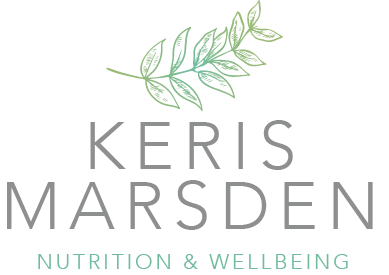6 steps to a hormone healthy salad
Salads are a great way to pack in some nutrients that are beneficial for hormone health. Here’s some simple steps to create tasty salad dishes with ingredients that really nourish your body.
Step 1: Choose a dark green base
Swap the traditional iceberg lettuce for some darker, green leaves like rocket, spinach, watercress, lambs’ lettuce, endive, romaine or kale. These contain higher amounts of antioxidants and a variety of micronutrients including vitamin C, folate, vitamin K and potassium. Red lettuce like radicchio is also a good option as it’s especially rich in beta carotene and anthocyanins, an antioxidant known for its powerful anti-inflammatory effect.
Small leaves like garden cress or micro greens add a nice peppery flavour but also provide a highly concentrated source of multiple nutrients, including iron, vitamin E and phytoestrogens which can support menstrual regularity and improve overall hormonal balance.
Step 2: top with a rainbow
Top your salad with 3-4 different vegetables and fruits that provide taste, different textures, and a range of colours.
Each colour offers different phytonutrients, these are beneficial compounds that have potential to support you hormones, but also improve immune health and cardiovascular function.
Rotate your salad toppers across the week to get a range of nutrients. Here’s a few ideas:
Cooked beetroot
Roasted peppers
Olives
Dried cranberries
Pomegranate seeds
Cooked chestnuts
Grated carrots
Garden peas
Edamame beans
Chopped apple or pear
Orange slices
Grapefruit
Red onion
Sliced celery
Sundried tomatoes
Sweetcorn
Radishes
Step 3: Add some healthy fats
Dietary fats provide the building block for hormone production.
Adding fats to salads improves the absorption of fat solution vitamins A,D,E and K and nutrients like beta carotene found in the other salad ingredients. The creamy texture also tempers the bitter green leaves making them more palatable. Great examples include:
Avocado
Nuts e.g. almonds, walnuts, pistachios, cashews
Seeds e.g. sesame, pumpkin, sunflower or flaxseed
Olive oil
Another delicious option is to top your salad with a sprinkle of cheese. Aged cheeses, like Cheddar, Parmesan, Manchego and Gouda all provide a good dose of vitamin K2 which is needed for strong bones. Cheese also contains beneficial bacteria which supports both your gut and hormone health.
Step 4: Add a handful of healthy carbs
Adding some wholefood carbohydrates transforms your salad into a substantial meal, rather than just a bowl of leaves. Slow-release carbohydrates provide extra fibre which will keep you feeling full and energised for hours.
Choose a variety of sources and add some colour where possible, here’s some helpful ideas
Root vegetables: butternut squash, beetroot, butternut squash
Quinoa
Wild, brown, red or purple rice
White, sweet or new potatoes
Legumes e.g. Chickpeas, lentils and beans
Step 5: Add something sour or acidic
A salad topping that is either sour tasting, bitter or acidic, like lemon juice, pickled foods or vinegar, can actually help balance your blood sugar levels. This keeps your energy level more stable after eating. They also add extra flavour to your salad combination. Here’s some great examples:
Lemon or lime juice
Balsamic or apple cider vinegar
Pickled red cabbage
Pickled onions
Capers
Gherkins
Olives
Sauerkraut or kimchi
Step 6: Sprinkle herbs or spices on your salad
Dried or fresh herbs and spices are loaded with antioxidants, vitamins and minerals and are a super convenient way to give your meals a nutrient boost. Mixed herb blends or Italian herbs work well with most salads.
You can also toast seeds like cumin, fennel or mustard (simply place in a hot, nonstick pan with no oil for a few minutes until golden) to add some flavour, texture and anti-inflammatory compounds.
Spices like chilli, smoked paprika, coriander and cayenne pepper are great if you want something a little more fiery.
Give this salad a go
Try this Mediterranean salad recipe and you’ll see just how tasty hormone healthy food can be.
Mediterranean Salad
PREPARATION TIME: 10 minutes
SERVES: 4
Ingredients
300g rocket
400g tin of cooked chickpeas, drained and rinsed
1 red pepper, deseeded and chopped
1 small red onion, finely chopped
1 medium cucumber, cubed
200g cherry tomatoes, halved
100g olives
100g feta cheese, chopped into squares
½ -1 tsp. chilli flakes
Salt and freshly ground black pepper to taste
Dressing
2 tbsp. olive oil
Juice of 1 lemon
1 tsp. oregano
3 cloves garlic, peeled and finely chopped or 1-2 tsp. garlic powder
Method
Prepare the dressing by mixing the ingredients in a small bowl and set aside.
Place all the salad ingredients in a large serving bowl, toss together to combine.
Pour over the dressing, toss together one more time and serve.



